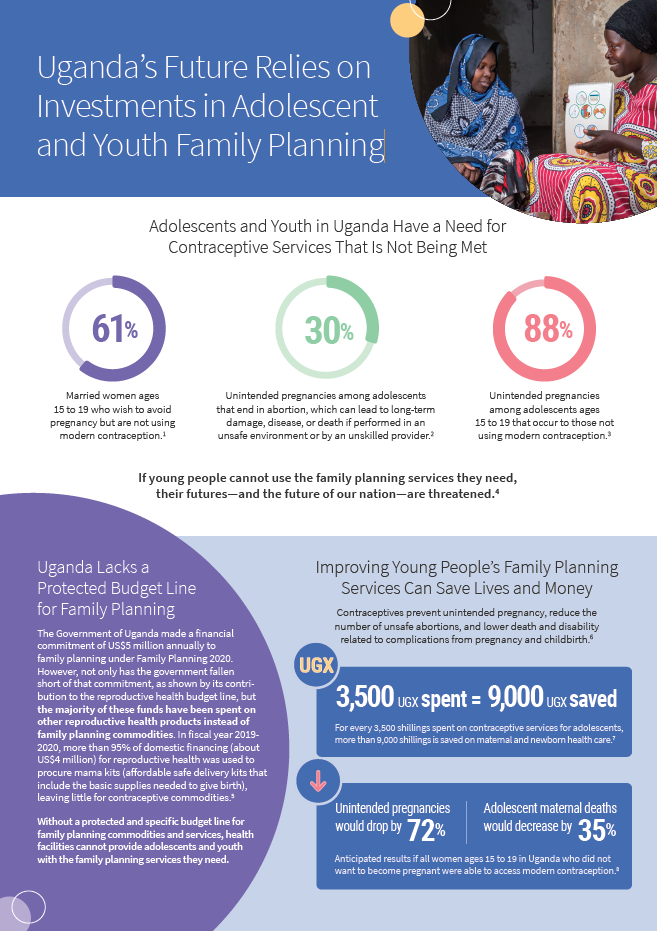
Uganda's Future Relies on Investments in Adolescent and Youth Family Planning
PRB partnered with Reach A Hand Uganda to convince decisionmakers to create an independent budget line for adolescent and youth family planning services and engage youth in these budgetary decisions.
Product: Video
Date: 2022
Partner: Reach A Hand Uganda
PRB partnered with Reach A Hand Uganda (RAHU) to create a suite of materials highlighting the need for the Ministry of Health (MOH) and district leaders to prioritize adolescent and youth family planning in budgets and involve youth as meaningful partners in budgetary decisions that impact their health.
Under Family Planning 2020, the Government of Uganda committed to dedicating US$5 million annually to family planning. However, the government has fallen short of that commitment. In fiscal year 2019- 2020, more than 95% of domestic financing (about US$4 million) for reproductive health was used to procure Mama Kits (affordable safe delivery kits that include the basic supplies needed to give birth), leaving little for contraceptive commodities.1 Without a protected and specific budget line for family planning commodities and services, health facilities cannot provide adolescents and youth with the services they need.
In addition to budgetary shortfalls, young people are often not involved in policymakers’ family planning decisions. Policymaking that does not involve youth can lead to less effective programs, and their resources may not be well used.2 Uganda has the opportunity to involve diverse young people in policy decisions, allowing them to become advocates for programs and services and helping ensure family planning programs better address the needs of all Ugandan youth.
In response, PRB and RAHU produced a fact sheet and video outlining the current state of youth family planning funding and how increased funding and meaningful youth engagement can save lives and money. Both products call on the MOH and district leaders to create independent budget lines for adolescent and youth family planning services, meaningfully involve existing youth organizations in the policymaking process, and work with youth as partners to ensure funding decisions are inclusive and meet youth’s needs.
References
1 HEPS-Uganda, Family Planning Commodity Financing and Supply Chain in Uganda, (Kampala: HEPS-Uganda).
2 Women Deliver Youth Program Team, Engage Youth: A Discussion Paper on Meaningful Youth Engagement (New York: Women Deliver, 2016); Youth Affairs Council of South Australia (YACSA), Better Together: A Practical Guide to Effective Engagement With Young People (Adelaide, Australia: YACSA, 2016); and Youth Coalition, Meaningful Youth Participation: What It Actually Means for You, Your Work, and Your Organisation (Ottawa: Youth Coalition).

 ">
">